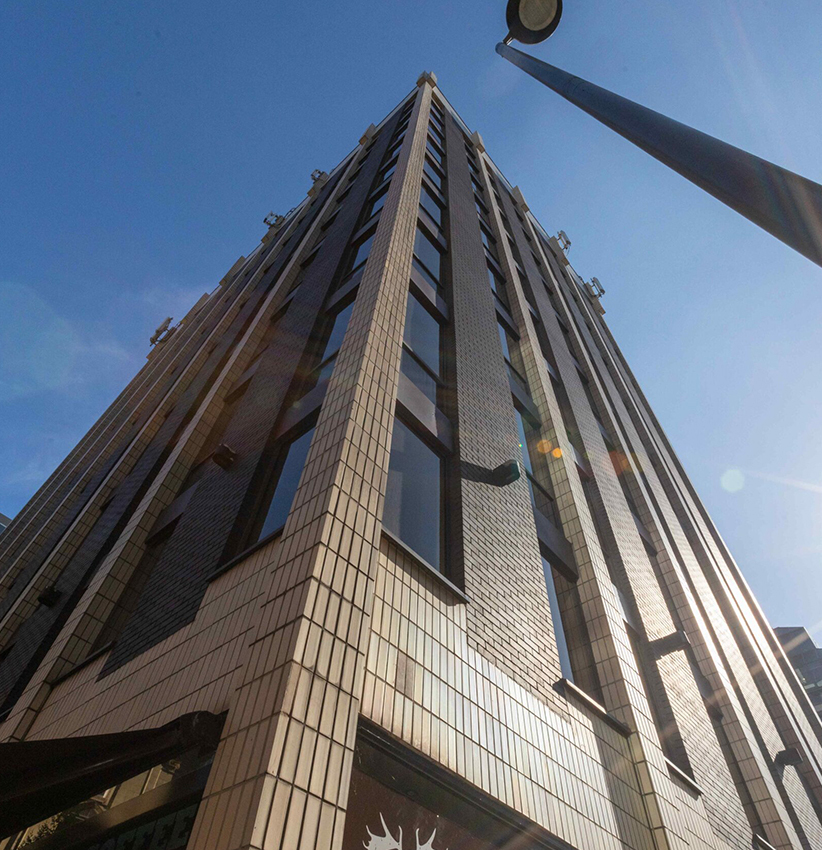Delivering maximum value to your business
R&D Tax
With tax credits allowing businesses to claim up to 33% of their research and development (R&D) costs, there’s no better way to advance your company in ways that you may have never thought possible.
We have helped a wide range of clients from varying sectors to claim thousands of pounds in tax relief or cash credits for their investment in new technology and developing new innovative products and services.
Don’t stall your business, expand its potential.
Get in touch with us today by calling us on 0161 399 0121 or emailing us at info@williamsoncroft.co.uk to discover how an R&D tax credit could be a step in the right direction for you.

Why Choose Williamson & Croft For Your R&D Claim
Although you can undertake your own R&D Claim, it can cause problems if the CT600 is filled out incorrectly and/or the level of supporting documentation is not up to the required standards. This could result in an HMRC enquiry or a processing delay that stalls your R&D claim.
Due to our extensive experience within the field we ensure that our R&D experts deliver maximum value to your business. We achieve this by utilising your existing record-keeping systems to capture all qualifying expenditure and to provide a robust report with enough technical narrative to satisfy HMRC should they launch an enquiry.
- We are an award-winning firm of accountants and tax advisors offering the full range of services to clients within the UK and beyond it. This is highlighted by our 5* reviews, and the fact that we come highly recommended by so many of our clients.
- We don’t believe in a ‘one size fits all’ approach. We offer strategic advice based upon market conditions, cash flow and the goals you hope, and will, achieve.
- We have clients from a wide range of sectors who consider us experts when it comes to understanding, and delivering on, their specific needs.
- We are easily found in Manchester and Liverpool and it would be great to arrange a meeting to discuss your business and for you to meet the team who will be assisting you.

R&D TAX CREDIT SERVICES
Our specialist team, ready to help you

Research and development (R&D) tax credits are a government incentive designed to motivate companies to invest in innovation. They are a key source of cash for businesses to invest in innovation, which can involve hiring new staff, buying technology and ultimately, taking their company, and industry, to the next level.
Tax credits let you reclaim up to 33% of your R&D costs, even if your project fails, or goes in another direction.
SME’s, regardless of whether they’re profitable or operating at a loss, can get back up to 33% of their R&D costs. Large companies qualify for the RDEC (Research and Development Expenditure Credit) regime and can receive up to 10% of their costs.
This credit can be offset against your Corporation Tax, or surrendered for a cash credit if loss making, after the end of your financial year.
- Staff costs, including salaries, employer’s NIC, pension contributions and reimbursed expenses.
- Subcontractor and freelancer expenses.
- Materials and consumables, including heat, light and power that are used during your R&D processes.
- Software usage and associated costs.
- Clinical trial costs, including payments to participants for taking part.
R&D can occur in every sector, and therefore any business, regardless of size or sector can benefit from R&D tax credits. If your company is developing new processes, products and services or modifying existing ones, then this could count as R&D, and you could be eligible for tax credits because of it.
Your Business Must Also:
- Be a limited company in the UK that is subject to Corporation Tax.
- Have conducted qualifying research and development activities.
- Have already spent money on these projects.
You will need to:
- Create a compelling technical narrative.
- Collate a clear table for key financial calculations.
- Include the expenditure on your CT600, and file this with HMRC.
Your narrative needs to show how you are:
- Seeking an advance in science and technology.
- Trying to overcome uncertainties.
- How these activities could not be easily worked out by a professional in the field.
If you’re spending money on new and creative products, processes or services or you’re looking to improve existing ones, then you may be entitled to R&D Tax Credits. If you’re spending money on your innovation, you can make an R&D claim which you can choose to take as a cash payment or Corporation Tax reduction. The scope of R&D Tax Credits is huge meaning almost any business can apply for them.
Virtually every business qualifies for R&D Tax Credits. This is because research & development takes place in every sector, from technology and eCommerce to property and construction.
There are two main areas that qualify as R&D, which are:
- Creating new products, processes or services.
- Changing or modifying an existing product, process or service.
Within the government’s definition, your R&D work doesn’t have to be successful to qualify, and you can also include work undertaken on behalf of clients and within other projects.
The key activity is resolving the scientific or technological uncertainties, this might be in a number of ways for example iterative development, prototyping, proofs of concept, or experimentation and testing.. The boundary of the R&D costs you can claim are those that relate to resolving the scientific or technological uncertainties you face. These differ in nature from the commercial project and the entire development project which might include routine work and elements not related to R&D.
To calculate how much you’ll get you need to identify qualifying expenditure and enhance that by the relevant rate. Doing this produces your enhanced expenditure.
When you deduct your enhanced expenditure from your taxable profits or add it to your loss, you’ll receive:
- A Corporation Tax reduction if you’re profit-making.
- A cash credit if you are loss-making.
- A combination of the two.
HMRC will allow you to claim Research and Developments tax credits on certain costs that relate to your project.
These costs are:
- Staff costs – This includes gross salaries, employers NIC and pension costs
- Externally Provided Workers – Costs for staff members that are brought in through an external agency will only be subject to 65% of the amount paid to the agency.
- Subcontractors – Under the SME scheme you can claim 65% of any subcontractor costs such (e.g external software developers).
- Consumables – This includes anything consumed during the R&D period such as heating, lighting, electric and water.
- Software – The software must be used or developed specifically for the R&D project in order to get full relief, however if part used then the relief will be apportioned appropriately.
When looking into if your development qualifies for R&D purposes you need to ensure you are not copying any existing products, processes, materials, devices or services, as this will not qualify. The costs that may be related but do not apply are as follows:
- Capital expenditure
- Patents and trademarks
- Rent or rates
- Production and distribution of goods and services
The calculation for the SME scheme is based on if your business is profit making or loss making, see below example based on £150,000 was spent on R&D activities.
Profit making
£150,000 x 130% (enhanced rate) = £195,000
£195,000 x 19% (corporation tax rate) = £37,050
Claim value: £37,050 (25%)
Loss making
£150,000 x 130% (enhanced rate) = £195,000
£150,000 + £195,000 = £345,000 (enhanced expenditure)
£345,000 x 14.5% (surrender rate) = £50,025
Claim value: £50,025 (33%)
R&D officially begins when a project seeks to advance science or technology and officially ends when the uncertain elements of the product or service are overcome.
Copying of usual products and services won’t qualify. Neither will the cosmetic improvement of a product or service if there has been a fundamental change or attempt to change, the product, process or service already.
The sooner you file the claim the sooner you’ll receive the tax credit. A typical SME claim usually takes 28 days, however, there are factors like complexity and accounts that could lengthen that time.
You can claim R&D Tax Credits as far back as two years from your current financial year-end. This allows companies to claim on previous projects as opposed to missing out.
It’s uncertain as of yet but some suspect R&D tax credits will become more prominent due to British companies not having that European connection. Brexit may force companies to focus inwardly to innovation therefore its thought that the UK government may reward them for this change.
VGTR stands for Video Game Tax Relief. If you qualify you can reclaim up to 20% of your production costs and is designed to help support the British gaming industry.
When HMRC receive R&D tax relief claims they review them all. They begin an enquiry into any claim and raise a query if it is necessary to do so.
No – only companies liable for Corporation Tax can.














